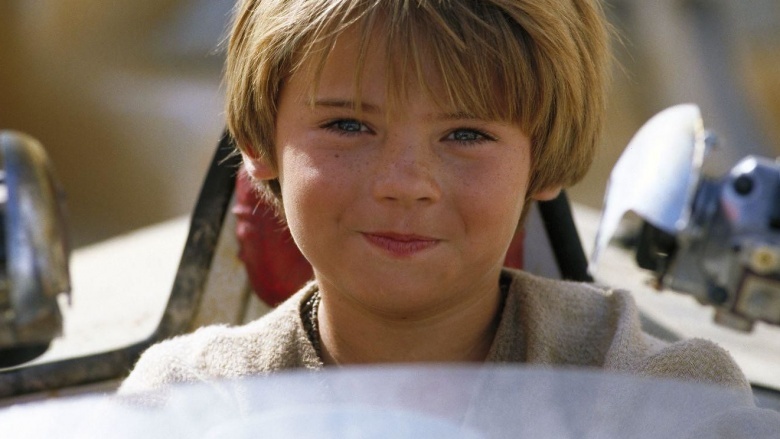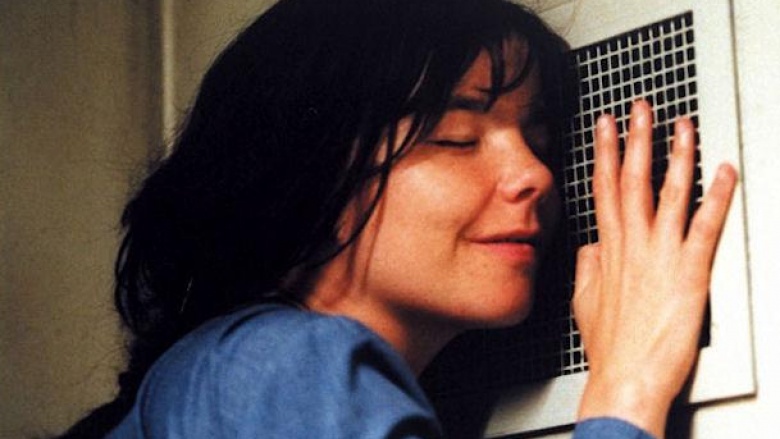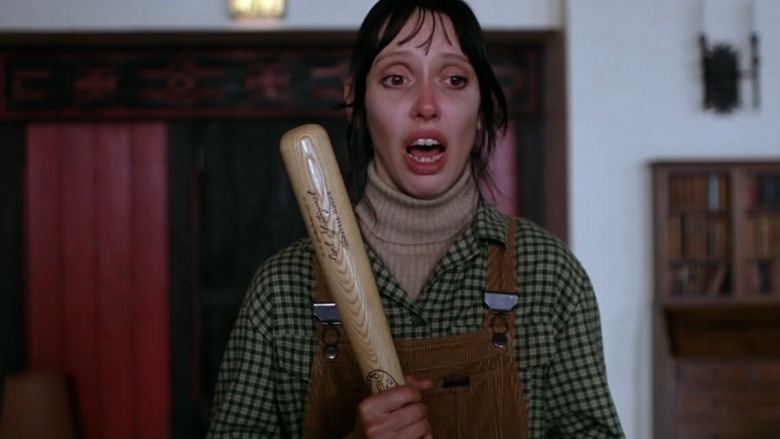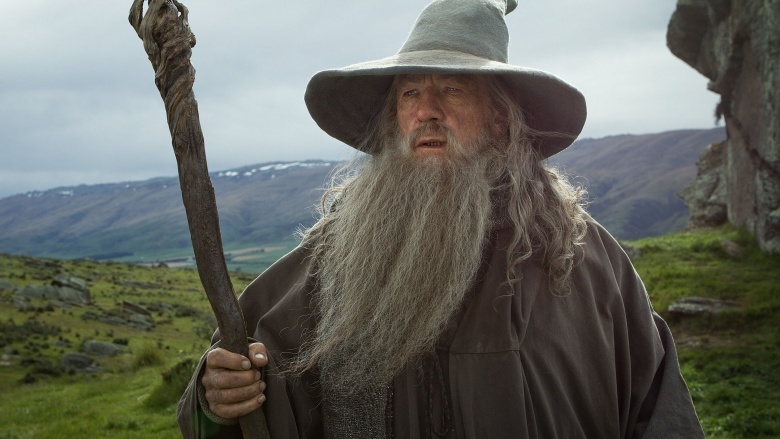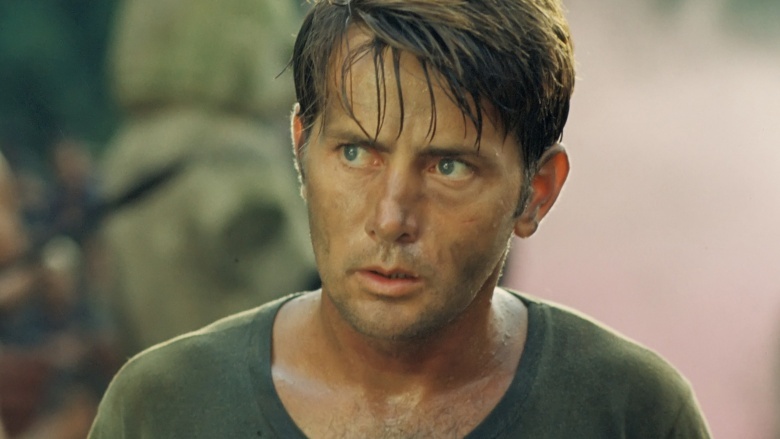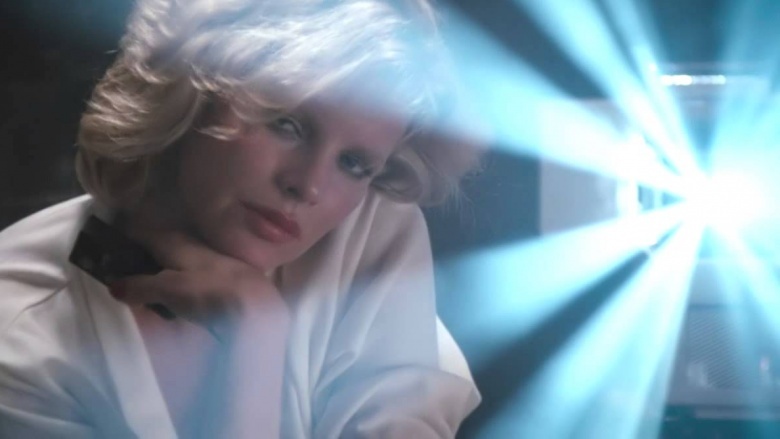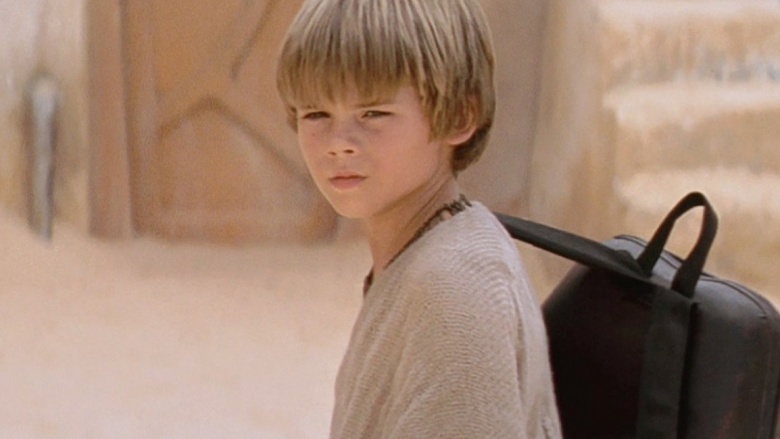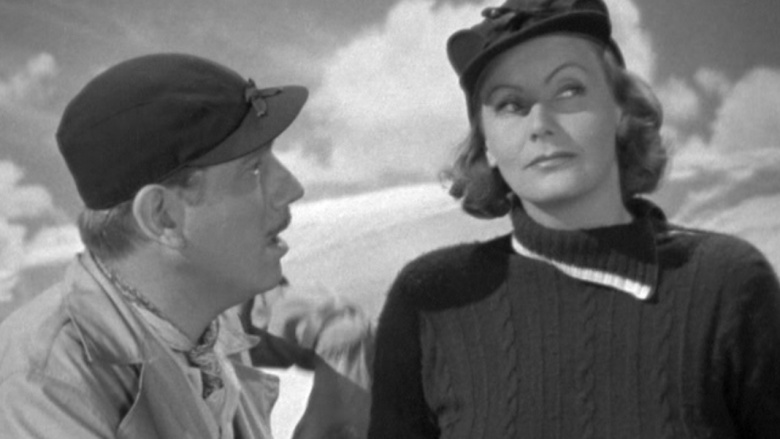Roles That Drove Actors Over The Edge
If an actor is lucky, he can stroll right into a movie set, say his lines, and go home. Other times, however, the humble actor may have a tougher time. A cruel director, a miserable location, a really bad script, or a terrible review may get into actors' heads and start to tear them apart on an emotional level. Here are some actors and actresses who were driven over the edge by the films they've appeared in.
Björk In Dancer In The Dark
Lars von Trier's intensely morose Dancer in the Dark was a traumatic experience for audiences, and musician Björk's first big acting role. Björk's character, Selma, is one of the more tragic and hopeless women to ever appear on screen, and it affected her deeply enough for her to swear off acting forever. Björk often argued with von Trier, and soon after filming was finished, Björk greeted him by spitting at his feet, and then asking to compose a song for him. We can only assume that's some kind of Icelandic death ritual. Or marriage proposal.
Shelley Duvall In The Shining
In order to give The Shining the psychological horror it needed, director Stanley Kubrick antagonized his actors. The film's script was changed so often that Jack Nicholson stopped reading each draft. Kubrick intentionally isolated Shelley Duvall and argued with her often. Duvall was forced to perform the iconic and exhausting baseball bat scene 127 times. Afterwards, Duvall presented Kubrick with clumps of hair that had fallen out due to the extreme stress of filming, which seems like something Kubrick would have collected anyhow.
Ian McKellen In The Hobbit: An Unexpected Journey
Director Peter Jackson's take on the works of J.R.R. Tolkien required a great deal of technical wizardry in order to convincingly film regular-sized humans alongside simulated Hobbits and Dwarves. In order to accomplish this, Gandalf actor Ian McKellen often had to act against green screens or on different sets than his little friends, performing with dummies instead of people. At one point during filming, McKellen completely broke down, saying, "This is not why I became an actor." He forgot his microphone was still on, and the entire crew witnessed the actor's emotional and existential collapse.
Martin Sheen In Apocalypse Now
The filming of Apocalypse Now was mired in so much difficulty that it's become legendary. From typhoons to a morbidly obese and unprepared Marlon Brando, everything about Francis Coppola's masterpiece was dangerous and frustrating. In one terrifying scene, Martin Sheen is seen drunkenly losing his mind, smashing a mirror, and smearing blood on himself. It was later revealed that most of this had happened spontaneously, and Sheen was allegedly losing his mind on a combination of drugs, alcohol, exhaustion, and seeing Brando with his shirt off.
Kim Basinger In 9 ½ Weeks
Kim Basinger's long breakdown started during the auditions for 9 ½ Weeks, when the film's producers asked her to perform a scene as a desperate prostitute. After crying in her car and deciding she'd never take the role, Basinger ultimately conceded to starring in the film. Director Adrian Lyne continued to antagonize and isolate Basinger while he shot the film's scenes in order, eliciting the effects of an actual breakdown from Basinger, years before a marriage to Alec Baldwin would have a similar effect.
Jake Lloyd In Star Wars: Episode I - The Phantom Menace
One might think that being a baby Darth Vader would open up all kinds of possibilities, but the negative critical reception of The Phantom Menace ruined Anakin Skywalker actor Jake Lloyd's life, according to the actor. After appearing in the film, he experienced constant ridicule in school before abandoning acting entirely. Even today, he's extremely uncomfortable around cameras, and remains standoffish when answering questions about the film. And no, he refuses the play "the Force card" to get ladies.
Greta Garbo In Two-Faced Woman
After seeing a decline in her stellar, but brief, career, Greta Garbo needed help. By way of a solution, MGM Studios attempted to revitalize the actress's popularity by casting her in comedic roles, instead of her usual cold characters. Her second comedy film, Two-Faced Woman, was so hated by critics that it drove Garbo into permanent isolation and retirement. She remained in seclusion for fifty years, refusing any publicity or offers for roles until her death in 1990, only seven short years before Batman & Robin proved that worse movies existed.
